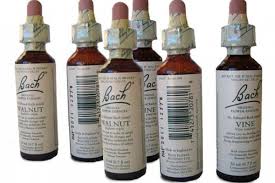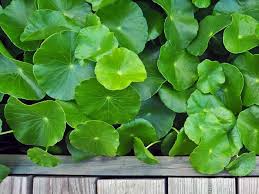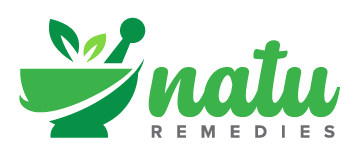Blog
Natural Anxiety Remedies: The Effectiveness of Herbal and Other Supplements for Anxiety
Many people want to avoid the addictive benzodiazepines that are often used to treat severe anxiety. Unfortunately, herbal remedies on their own tend to be ineffective against panic attacks, though some have shown efficacy in treating the generalized anxiety and depression that often accompany the disorder.
Herbal Remedies
Bach Flower Remedies – Although some people swear by them, studies indicate that Bach Flower remedies are no more effective than placebos in treating situational anxiety. Chamomile – Much like Chinese skullcap and hops, there is no solid evidence that Chamomile reduces anxiety. Ginkgo

Biloba – Ginkgo improves mental clarity and concentration by increasing the flow of blood, nutrients, and oxygen to the brain, and may also reduce anxiety for some. Be careful when using Ginkgo with aspirin as the combination may inhibit blood clotting.
Gotu Kola – A placebo-controlled, double-blind study found that the startle response (an anxious reaction to sudden loud noises) was reduced in subjects who took Gotu Kola. As such, this herb may reduce anxiety, though more research is required to confirm this. Other reported beneficial effects include improved memory, circulation, and better healing after childbirth.

Kava – This is somewhat effective in treating mild anxiety but may cause severe liver damage depending on which parts of the plant are used, so it is not recommended.
Lemon Balm – Lemon Balm may reduce anxiety for some, but there have not been many studies conducted into its anxiolytic properties. Licorice – Sometimes recommended for anxiety, Licorice should not be used by those taking blood thinners, diuretics, or antidepressants; those with diseases or conditions of the heart, kidneys, or liver; or those with high blood pressure.
Linden Flower – A couple of studies examining this herb’s ability to provide anti-anxiety or sedative effects yielded mixed results. Passion Flower – Some studies have found Passion Flower to be quiet effective against both anxiety and insomnia. St. John’s Wort – This herb increases serotonin, dopamine, and norepinephrine levels, so it is effective for some people in treating anxiety and depression. St. John’s Wort may interact adversely with certain medications, including antidepressants. Side effects, which are uncommon, include increased sensitivity to sunlight, upset stomach, dry mouth, and dizziness.
Valerian – Effective for some people in treating generalized anxiety, Valerian is relatively safe but may interact adversely with certain medications. Very high doses can actually increase anxiety. Amino Acids Most amino acid supplements are not recommended for anxiety disorders. For those that do show some efficacy, supplements should be taken with a carbohydrate snack or fruit juice, and not with protein, which may compete with the supplement. Amino acids that have been used for anxiety include the following.
GABA (Gamma-Aminobutyric Acid) – Although GABA supplementation is occasionally recommended to treat anxiety, there is no evidence supporting its use. Also, it may be unable to cross the blood-brain barrier when taken orally, so would provide no benefits. SAM-e (S-adenosyl-methionine) – European research suggests that SAM-e is as effective as SSRIs in treating depression because it increases dopamine and serotonin levels, and clinically depressed people are often deficient in it.

There has not been much research conducted into its anti-anxiety effects, although it acts on neurotransmitters that play a role in anxiety. However, high doses may cause nausea and other digestive disturbances, anxiety, and manic states.
Tryptophan (L-Tryptophan or 5-Hydroxytryptophan) – This amino acid is a precursor to serotonin, which regulates mood, appetite, pain threshold, and sleep; induces feelings of well-being and calm, and is effective against insomnia. Tryptophan deficiency causes anxiety, and so supplementation may help some anxious people. Natural sources include bananas, milk, cottage cheese, dried dates, turkey, fish, and peanuts. Other Natural Supplements
Additional natural supplements that are often recommended for panic disorder include the hormone melatonin and Omega-3 fatty acids.
Melatonin – Melatonin is used to treat sleep cycle problems, and Saudi researchers found it effective in reducing anxiety in 4 separate studies, but other researchers have not been able to confirm these effects. Omega-3s – These are best obtained via fish or fish oil, and can help reduce depression and possibly anxiety for some.
Pregnant women and those who are breastfeeding should not eat certain fish due to mercury content. Fish oil capsules should be purchased from reputable dealers who can certify that their products are free of mercury and other toxins. Interactions and Contraindications Supplements may be contraindicated for certain medical conditions and may interact with some medications, so a physician should be consulted before taking them. Certain supplements should not be taken by those who are pregnant or suffer from high blood pressure.
Additional Natural Remedies
Additional therapies that show some promise for treating anxiety but require more research to confirm their effects include: • Acupuncture – A traditional Chinese medical practice in which needles are inserted into key points on the body
• Aromatherapy – Using extracts of Bergamot, Balm, Jasmine, and other herbs either in an atomizer, a burner or on cotton balls
• Biofeedback – Measuring bodily functions such as heart rate and providing real-time feedback to help people control their physiological reactions
• Massage and relaxation therapies – Used in conjunction or on their own Valerian – Effective for some people in treating generalized anxiety, Valerian is relatively safe but may interact adversely with certain medications. Very high doses can actually increase anxiety. Amino Acids Most amino acid supplements are not recommended for anxiety disorders. For those that do show some efficacy, supplements should be taken with a carbohydrate snack or fruit juice, and not with protein, which may compete with the supplement. Amino acids that have been used for anxiety include the following.
Cannabinoids
Some of the newest therapies in the USA are based on CBD, the non-psychoactive cannabinoids extracted from hemp. Many people buy & review cannabinoids online today, convinced about the positive effects on the wellbeing of these supplements.
